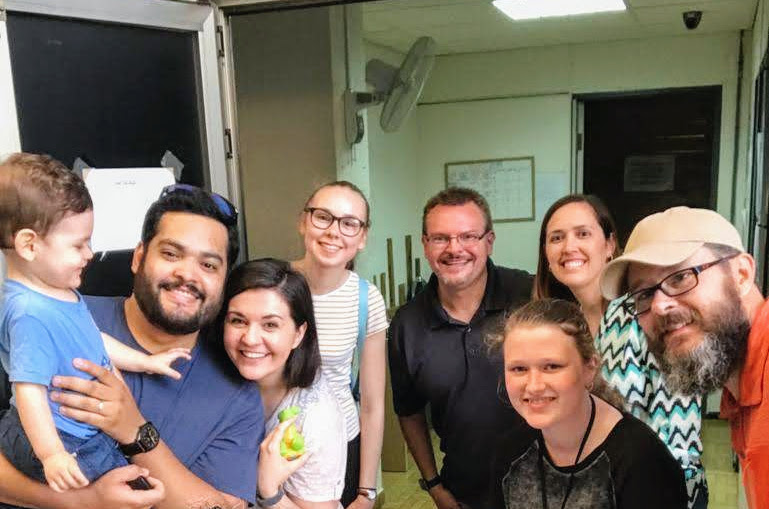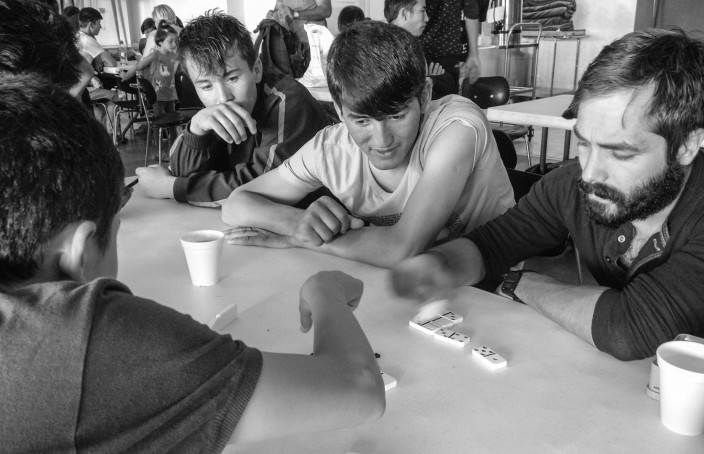“Teaching English may well be the 21st Century’s most promising way to take the gospel to the world. It’s the globalised world’s equivalent of a cup of water for the thirsty.”
Agnieszka Tennant, Associate Editor of Christianity Today. She came to faith after English teachers shared God’s Word with her.
2:19 was set up as a ministry of SIM, to help churches embrace the nations around them through English language teaching. Here, they share some top tips of setting up an international café!
1) Establish your aims. Why run an international café? Perhaps you have many women at your English class, and wonder how to have more contact with their families? A café could be a great place to start to build these relationships.
2) Pray. Share your idea with your church and other like-minded churches locally. Ask them to pray with you as you plan. As the café is established, do regularly update the churches involved and ask for prayer for visitors.
3) Involve volunteers. Anyone involved needs a love for internationals, the English language and sharing their faith.

4) Funding. How will you provide hospitality? You could encourage people at church to ‘sponsor a coffee for £3’ or see if there are grants from local charities? For example, a local charity supported an international café in Reading so the team can give each visitor a free drink voucher on arrival. The host café is grateful for this system, as it meant service is faster and the bill can be settled in one go at the end.
5) Choose a suitable location. Be honest about the intentions for the café when talking with the venue’s management. Who knows what opportunities you may have to share your faith with the staff? You may be able to agree on a set price for your drinks each week, or for leaflets to be left on tables.
6) Decide on a time. Early evening may work well for families, especially if shops are shutting then too. When talking with the venue’s management, you’ll need to find a time when they are lacking customers, to suit them. The Reading café meets early on Saturday evenings, which is ideal for kids and gives trade to the café at a ‘dead’ time.
7) What activities? There are so many table and board games that can be used or adapted for those with only a little English. Choose games that will encourage people to talk, get to know each other and have fun. (For some tried and tested ideas of suitable games take a look here.)

8) Who is the team? It’s helpful to have a core committee for roles, such as a treasurer and an administrator, as well as additional helpers who don’t have specific roles. To make it sustainable for everyone, you could have a rota so that no one has to be there every time.
9) Be intentional. A vision statement and code of conduct is great for the unity of the team and ensures everyone knows where you’re heading.
10) How will you share the gospel? Build relationships and begin to share your faith when you have the opportunity in conversations. However, do be upfront at the start of each session that this is run by Christians. Later, you could have a ‘testimony slot’ from members of the team, or run a simple Bible study after the official ‘café’ is over. Whatever you decide, ensure you have multilingual literature laid out for people to take away.
Find out more about using English teaching as cross-cultural ministry with 2:19.

